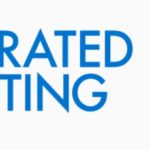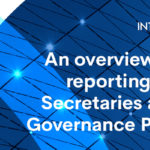
Since the IIRC was formed with the support of IFAC in 2010, the number of organizations using integrated reports to communicate their value creation story has increased, with now more than 2,500 businesses in over 70 countries implementing integrated reporting. While this is significant progress, to achieve greater confidence in integrated reporting, we believe assurance of integrated reports needs to progress more quickly and consistently across jurisdictions to help build trust in integrated reports. For integrated reporting assurance to progress further and with pace, new thinking is needed to achieve assurance on an integrated report given its broad and forward-looking focus on value creation covering all key elements of a business – its purpose, strategy, risks and opportunities, its resources and relationships, its value creation process and its competitive advantage in its use of its capitals in its value creation process. To provide thought leadership, IFAC and the IIRC launched a vision for Accelerating Integrated Reporting Assurance in the Public Interest in March 2021 with the aim of providing clarity on what integrated reporting assurance involves for organizations, auditors and others.
Guidance and practice need to develop further in this immature part of the reporting and assurance world. Solutions based largely on historical assurance approaches will likely not be sufficient when there is much more emphasis on qualitative, forward-looking information, and self-selected performance metrics.
We believe that for integrated reporting assurance to rapidly develop, businesses and auditors need to innovate in the interest of ongoing relevance and trust. Users also need to be realistic in their expectations as the assurance system matures particularly with respect to integrated reporting and its efficacy.
To date, assurance on integrated reports has been developing incrementally with numerous instances of limited assurance on components of integrated reports, such as selected sustainability metrics, under SASB or GRI standards. For seven organizations, we have seen the emergence of limited assurance of integrated reports prepared in accordance with the integrated reporting criteria applied by management (e.g. using the <IR> Framework).
As the number of businesses around the world implementing integrated reporting increases as a route to long-term value creation and sustainable development, the demand for assurance services on such reports should also rise. But there are demand and supply-side issues.
On the demand side, organizations need to understand what integrated assurance involves and see the business benefits. This starts with the board and the audit committee, and executive. Businesses on the assurance journey such as ABN AMRO experience the benefit. Tjeerd Krumpelman, Global Head of Advisory, Reporting & Engagement reflects, “We decided a few years ago to obtain cover-to-cover independent assurance on our 2017 Integrated Report from our financial statements auditor, EY. We were a groundbreaker in this regard, and encourage all other integrated reporters to do the same. We believe this pathway has not only enhanced the credibility of our report and provided stakeholders with increased confidence, but we also received valuable reporting and process improvement recommendations. Our next step is to move from limited to reasonable assurance for parts of our integrated report, and to obtain assurance on other non-financial disclosures, such as our Human Rights report, because it makes good business sense.”
For organizations and investors, it is critical that they understand and appreciate the contribution that integrated reporting assurance can make and importantly understand what it is they are buying, particularly when it comes to the difference between the two main types of assurance – limited and reasonable- and what is required of auditors and organizations to achieve reasonable integrated reporting assurance.
We believe the move towards reasonable assurance of integrated reports should progressively provide higher value assurance activities for the organization, its investors and other stakeholders. It should lead to improvements in the quality of integrated reports and underlying business practices, and help enhance the connectivity of financial statements to broader narrative information.
On the supply-side, financial auditors need to step-up. They are well-placed to deliver high-quality integrated reporting assurance given their assurance skillset, experience in financial audit and professional scepticism and judgement. Their professional training and experience provide both an understanding of organizations of all types and sizes, and an ability to apply judgement and problem solve in complex situations. Integrated reporting assurance is a critical element of the future role of accountants, enabling a career pathway to apply their professional expertise beyond financial information in corporate reports to other information that is related to enterprise value creation, ultimately improving confidence in business resilience and sustainability.
The developments in global standard setting for corporate reporting need to quicken to help drive integrated reporting assurance and the comparability and consistency of sustainability information. To this end, it is encouraging to see that the IFRS Foundation trustees, noting the “growing and urgent demand to improve the global consistency and comparability in sustainability reporting”, have set a timeline for their deliberations on establishing a Sustainability Standards Board. We are firmly in support of the IFRS Foundation moving forward in this manner.
For assurance providers, the International Standard on Assurance Engagements (ISAE) 3000 (Revised), Assurance Engagements Other than Audits or Reviews of Historical Financial Information serves as the foundational international standard to deliver high quality integrated assurance engagements.
To support the application of ISAE 3000, the International Auditing and Assurance Standards Board is soon to release additional guidance on assurance of extended external reporting (EER). Integrated reporting is one example of EER and the EER guidance is a starting point for advancing integrated reporting assurance.
This first instalment on accelerating integrated reporting assurance highlights the importance and nature of integrated reporting assurance, current trends, opportunities and challenges, and how reasonable assurance needs to develop to address the specific and unique features of integrated reporting.
More understanding and guidance will be needed, particularly on moving to a reasonable assurance engagement given this transition requires assurance procedures and obtaining evidence on the integrated report, including the reporting and other key business processes comprising the value creation process.
To help us provide additional support to make integrated reporting assurance become a reality, we welcome feedback on our thinking as set out in the report, particularly addressing:
- The nature of integrated reporting assurance and the scope and extent of integrated reporting assurance engagements delivering reasonable assurance
- The areas in which additional guidance would be useful for assurance providers
- The opportunities and challenges for progressing integrated reporting assurance.
Download the publication (pdf)



